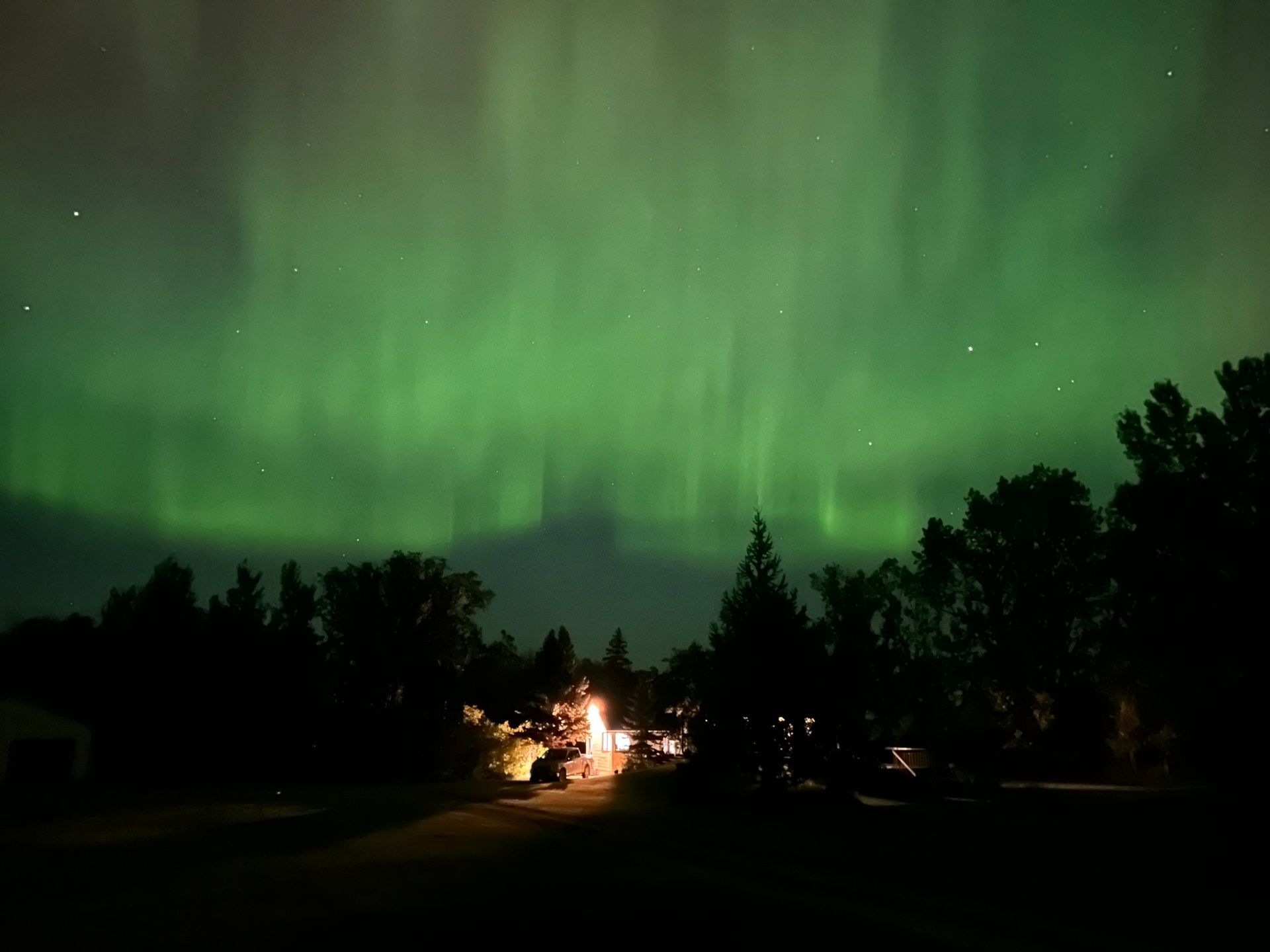Laying Down Stones
Wayne Irwin • March 3, 2020
The First Sunday in Lent
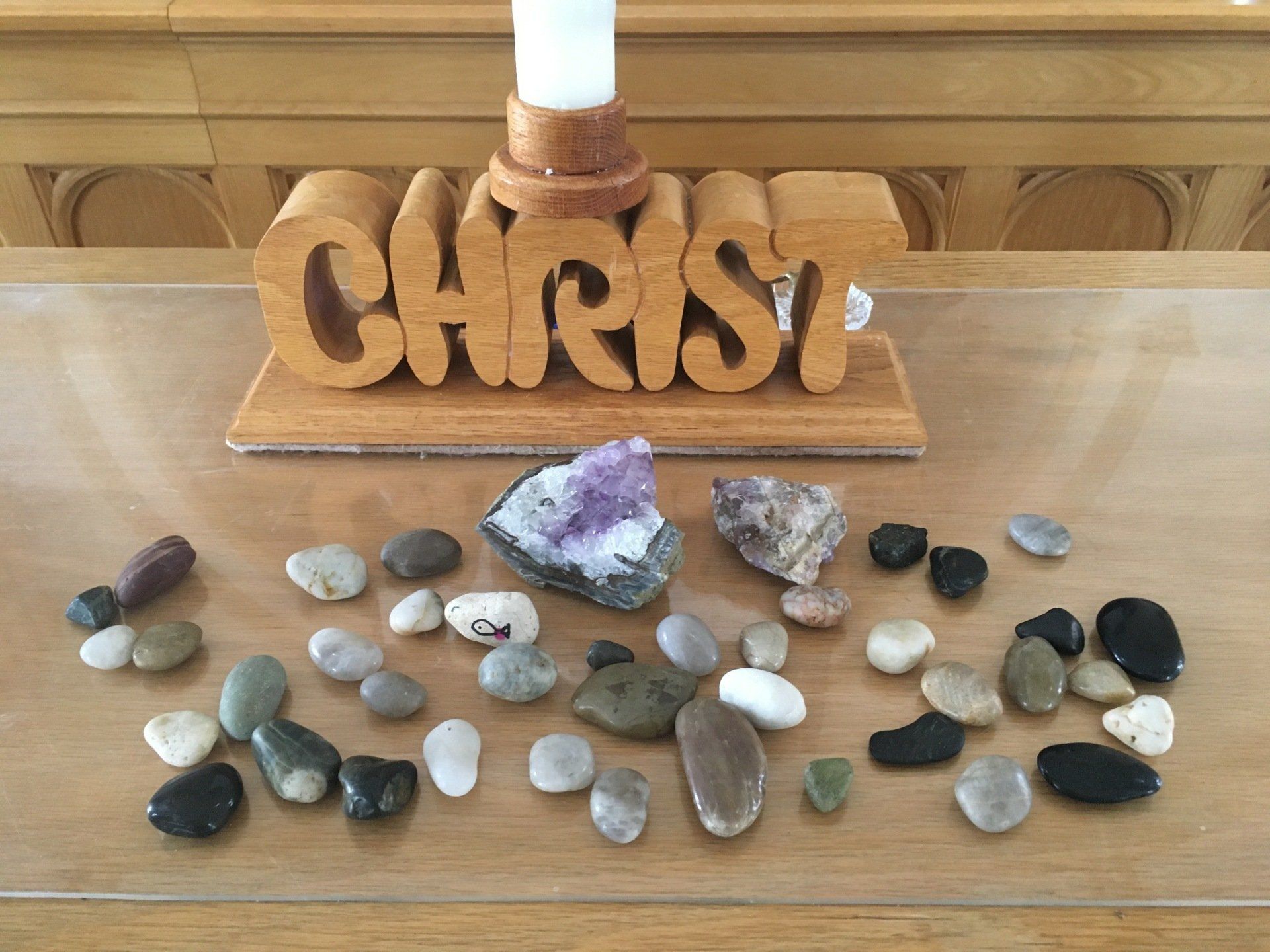
Are you one of those people, or do you know one of those people, who collect stones? My niece, Willow, is one of those people. And I have a cousin who is one of those people. And, the cool thing is that even though my cousin struggles sometimes with remembering things, when we were visiting and she offered me some of her stone collection to use in my ministry, she was able to pick up certain rocks and tell us the story behind them. Because the super cool thing about these rocks that have been collected is that they don’t just remind you of the place you have been, although they do that, they can also remind you of the entire trip—who was with you, what you might have been feeling like that day, if it was raining, where you were heading and even what you did when you got there. It’s a lot for a small stone to carry but it manages somehow.
In the summer of 2018 as we drove across Canada, Olyndra and Neelah picked up some rocks from Pebble Beach in Marathon, Ontario and they mark something far greater than just a trip and a destination—they have become a physical embodiment of a milestone in their lives. The milestone of moving and starting over somewhere new. Marathon marks the physical half-way point between Kelvington, Saskatchewan and Stayner, Ontario almost exactly. Where they left the old, and traveled to the new.
So, in that spirit, I invite you to find a stone—maybe here at the church (there is a basket of them at the back of the sanctuary) or maybe on a beach nearby or maybe from your driveway or a nearby street. And I invite you to place it in the middle of your kitchen table or on your night-side table or even your coffee table. Let that stone be a symbol of the strength and solid rock that is your faith and this church family—that cares for one another, laughs over coffee and struggles over sound system failures and desires to live according to God’s will. Let that stone remind you of the God who is with you on your journeys. Pretty big expectations of a little stone hey?
But that’s not all I’m expecting from your stone—I’m hoping it will be a symbol throughout this Lenten Journey we are on that will draw us deeper into the faith story and closer to God. Throughout our lives we don’t just pick up literal stones, we pick up metaphorical ones—the rocks of worry and anxiety, the stones of sorrow and disappointments, the boulders of guilt and shame, the mountains of pain and grief—all those things that we carry around with us and that weigh us down as we begin this season of Lent.
As we enter this season of Lent, I want us to join in a symbolic action of laying down the burdens we carry. That we might enabled to “let go and let God” as the saying goes. In laying down our burdens, we will be freed to rise above the flood waters of life spoken of in Psalm 32 and face the future as the psalmist declares surrounded with shouts of deliverance and steadfast love. In sending Jesus to walk among us, God reaches out to us and gives us a friend who will bear our pain and the pain of the world. As we begin our journey through Lent, I invite you to acknowledge all that weighs down you heart and mind and body and begin the process of laying them down that we will not be swept away by the weight of the cross but freed to experience the joy of resurrection.
“Sticks and stones will break my bones but names will never hurt me” is one saying that is just completely false. Because names thrown at us by school children in the first years of our life are the first stones that weigh us down on our journey through life—“hey string bean!”, “Flag pole”, “freckle face”, “liver lips”, “blubber” – they slam into you heart and lodge there for years—sometimes even a life-time—dictating how you see yourself and the way you act in the world. The fat girl becomes anorexic, the boy with bad teeth develops the habit of mumbling, the sensitive kid becomes a bully.
For those here today who still feel the weight of these societal expectations—for those weighed down by the sense that they are not good enough— dislodging these stones and laying them down is especially hard since these are the first stones to pierce our hearts, they are in there deep and they are mountains now. And so we pray to God as we seek to lay them down today.
Others today may feel more heavy upon their hearts the weight of sorrow and grief that accumulates over a life-time. Your dog dies, you loose your job, the crop gets flooded out, you have to move out of your home, your parents pass away, your partner gets cancer, your child is ill, you have a falling out with a sibling, your friend is in a car accident. And on top of all this personal sorrow and grief you are well aware that the death toll from the Corona Virus is rising, there are people killed daily in wars and uprisings and protests and terrorist attacks, famine and poverty are wide-spread in 2/3 of the world. And we all know that the list goes one. If you think of each one of them as stones—it’s pretty easy to get buried underneath the weight of it all. How hard is it to lay down our sorrow, sadness and grief—what would we be freed to do if we could?
Still others might feel weighed down today by worries—worries about family travelling far and near, about what the spring will bring given all the snow and how high the water table was in the fall, financial worries, worries about their health, concern for friends going through difficult times. It is easy to feel weighed down with worry. Perhaps these worries are what you would like to lay down as you begin this Lenten journey.
There is also a tendency to bear the burden of guilt and shame pretty heavily upon our hearts. Whether it is the weight of a guilty conscience because you know deep in your heart that something you did was not something God desires of you—calling other kids those horrible nick-names, holding a grudge against your brother, fudging the truth a little at work—you know what I mean. And beyond that, there is the sense of guilt we all carry just by the fact that we are aware live in a country that is “rich” in comparison to many others living in poverty and we cannot deny that we are complicit in unjust systems and societies. Can we ever hope to lay these down?
You alone know the burdens of your heart as we begin our Lenten journey together. As you read the words below, written to go with the Hymn #462 in Voices United, I invite you to place those burdens upon the stone you have chosen and symbolically lay down those burdens as you lay down the stone. And as you do so, I invite you to lift your unburdened hearts to God in prayer. By the grace of God in Jesus Christ we shall be surrounded by shouts of deliverance and steadfast love. Amen.
The weight of expectations that we bear,
The feeling that we’re never good enough,
The mountains that we make out of molehills—these we lay down.
The stones of sorrow, sadness and despair
The avalanche of suffocating grief
That covers us and keeps us from your love—these we lay down.
The worries that are burdens on our minds,
Anxiety for neighbours far and wide,
The helpless way we feel both day and night—these we lay down.
The guilt and shame we carry in our heart,
For all that we have done or haven’t done,
That kept us from experiencing your love—these we lay down.
Lord Jesus Christ, companion of our days,
You take for us the burdens of our hearts
You free us to experience the love—which you lay down.
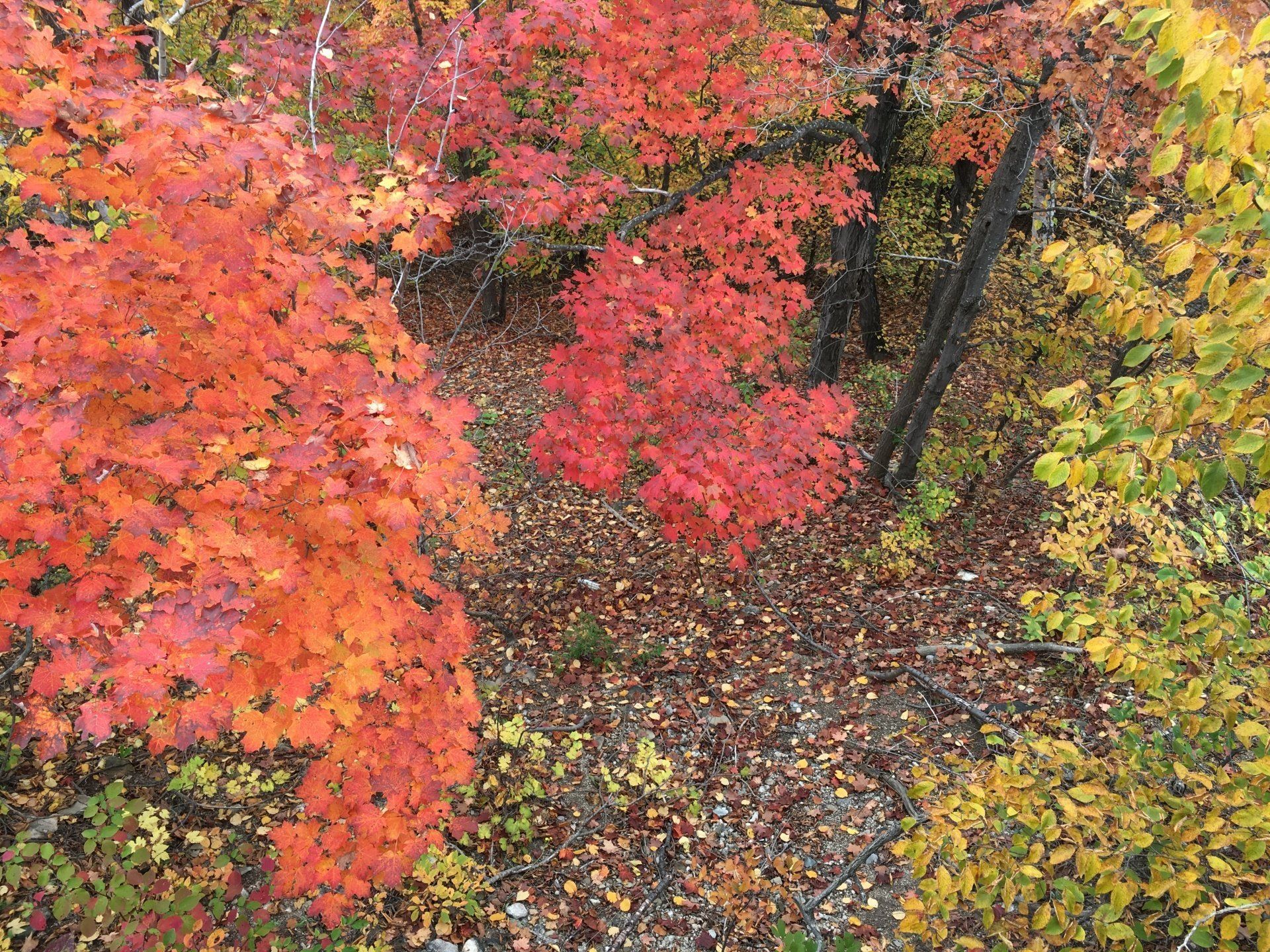
Don’t be afraid. My love is stronger, my love is stronger than your fear. Don’t be afraid. My love is stronger and I have promised, promised to be always near. I love the reassurance of this refrain in More Voices just as much as I love the words of reassurance found in our scripture readings for this morning from Matthew and Joel. Matthew tells us not to worry and Joel instructs us “do not fear”. Which, as we all know is one of those things that is easier said than done. After all, especially now, there is a lot to worry about and there is, frankly, a lot to be afraid of. This week, in the middle of the night, Neelah woke up feeling terrible. She crawled into my bed and said “I don’t feel good, Mum.” Oh no, I immediately thought… what’s going on? Did she catch Covid at school? Then she ran for the bathroom and promptly threw up. Oh no! That’s not a good sign. Maybe she just ate something that upset her stomach… she said she had a bad headache when she went to sleep so perhaps it was just that (but why did she have a headache?) She crawled back into bed with me and the worries and fears just kind of took over. Should I even be cuddling and comforting her like this if it is Covid? Are we all going to have to isolate? How much school is she going to have to miss? What if she does have Covid? What if I get Covid? What will happen to Thanksgiving worship then? Should I cancel everything on my schedule? What if I spread Covid to someone else? What if I already have? How worried should I be? How afraid should get? How long will it be before I fall back asleep? What’s going to happen if I can’t get back to sleep right now? Deep Breath: Don’t be afraid. My love is stronger, my love is stronger than your fear. Don’t be afraid. My love is stronger and I have promised, promised to be always near. I know I’m not the only one who has spent more than one restless night consumed by fears and worries. This was just one example from this week—just one small thing can set off an avalanche of our fears—rational or irrational—it doesn’t seem to matter—they just all come crashing down on us and leave us feeling, well, anxious and terrified. There are so many bigger, darker, scarier reasons that we have to be afraid. To be consumed with worry. Reasons that don’t go away with a simple negative Covid test result. Sitting in front of the doctor who has just spelled out for you how bad the cancer really is. Hearing how long your daughter has left. Laying beside an empty space where the person you loved used to sleep. Reasons that aren’t just first world problems…environmental disasters, war torn countries, famine… Things that can’t be fixed by a little “Don’t worry, be happy” song. That’s the kind of fear and worry facing the Israelites when Joel is prophesying. And still, into that worry and fear, God speaks through Joel the words of our faith: Don’t be afraid. My love is stronger, my love is stronger than your fear. Don’t be afraid. My love is stronger and I have promised, promised to be always near. Look at the birds in the air, consider the lilies in the field, Oh, children of Zion, be glad and rejoice for the Lord our God is in our midst. God’s love is near always. And the wonderful thing about this time of year is that you don’t have to work very hard to see that God is indeed all around us. Walking down to the Look Off at Devil’s Glen in the midst of my worries (even though the self-assessment Neelah took assured us that as long as we were fully vaccinated those of us living with her could go back to life as normal) the glory of those fall colours seemed to sing to me again: Don’t be afraid. My love is stronger, my love is stronger than your fear. Don’t be afraid. My love is stronger and I have promised, promised to be always near. There is no doubt in my mind that it is as Joel says—God can be found in our midst, all around us, all the time. And I’m not preaching that it is your job to find God—that you have to put on a happy face and see only the good in any situation—that’s not how it works. No, what I’m saying is that God is all around and God’s love breaks in even in our worst and darkest moments and we don’t have to do anything at all to receive God’s presence and feel God’s love. Sometimes, God speaks through the voice of a friend calling to see if you’d like a visit after you’ve just got home from the hospital. Sometimes, God is there in the strength that comes when you need it most helping you to carry on. Sometimes God draws your eyes to the hills and enchants you with the beauty of this creation giving you a new perspective. So that even in our worst moments, our awfulest days, God’s love is there—strong enough to find a way to break into our lives even when we aren’t looking for it—even when we’ve given up hoping for it! And so, no matter where we are, no matter what is happening, we give thanks for God’s song: Don’t be afraid. My love is stronger, my love is stronger than your fear. Don’t be afraid. My love is stronger and I have promised, promised to be always near.
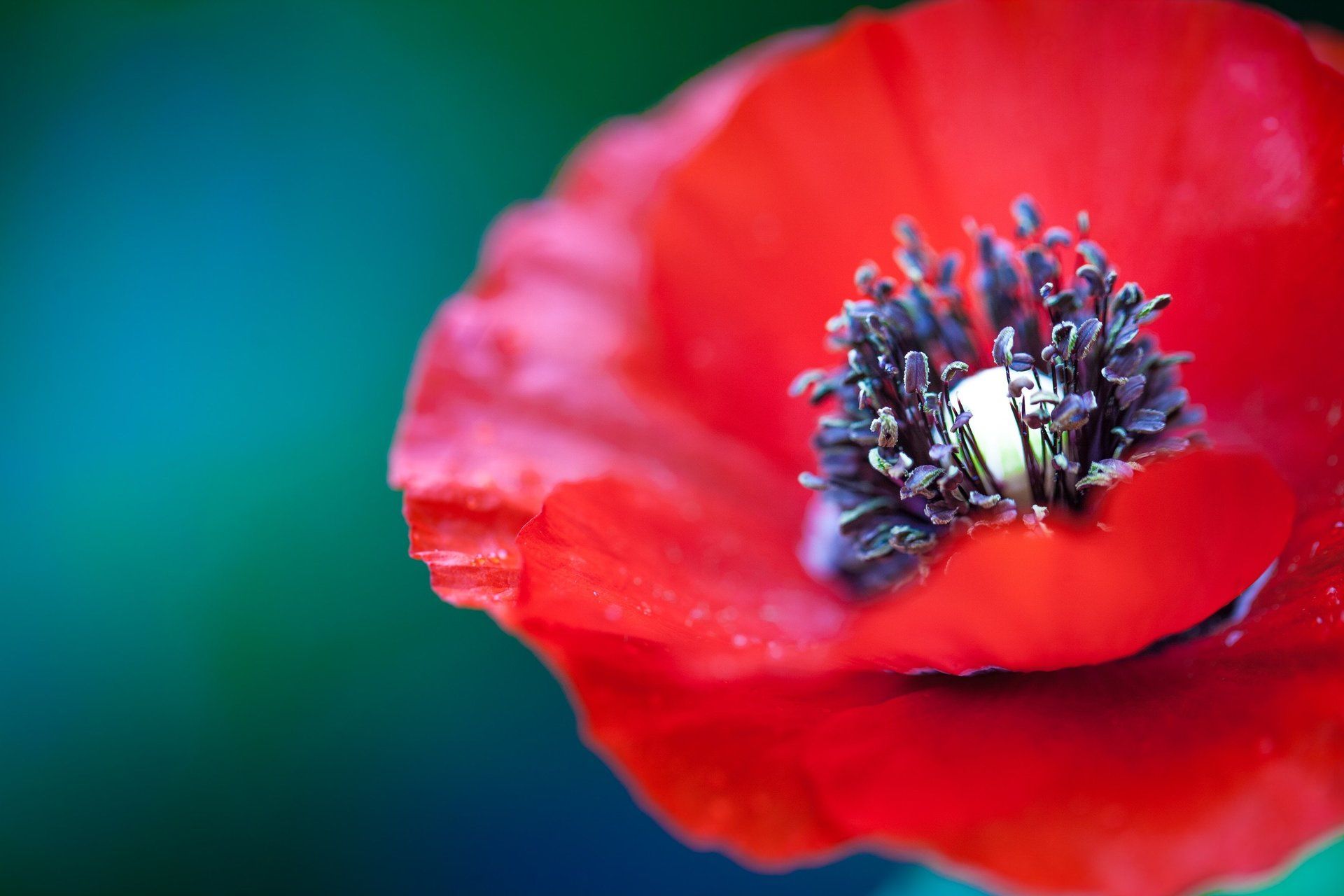
A traditional Remembrance Day Service includes two minutes of silence. The truth is, in our every day lives, we are rarely exposed to silence. Even when everything is quiet, there is still the hum of the fridge, computer or furnace running in the background. For the most part, we don’t tend to look for or really even appreciate silence in our lives. When we are with a group of people we tend to feel silence as awkward. When we are at home with young children we know silence just means someone is getting smeared with Vaseline or the walls are being written on. When we are alone, we tend to turn on the radio or the TV to break the silence that leaves too much room for our thoughts. But on Remembrance Day, we allow time for silence. And we let ourselves remember. And when you are in a hall, or a school, or at the grocery store, or around a cenataph, and silence is held and honoured—in a place where there is normally noise and chaos; when business as usual comes to a halt; where the outside world ceases to exist for a time—it is shocking and awe-inspiring. Each Remembrance Day, we honour that time for silence for two minutes along with millions of others around the world—and that absence of sound world over makes an impact far larger than even what we can feel when we observe it on our own. And it is a vigil that speaks louder than any words ever could. A vigil that recognizes that the horrors of war that leave scars on skin and soul, heart and mind and forever transform the lives of those involved, are often so devastating they can only be remembered by silence. And as the author of Ecclesiastes says: “there is a time for silence.” Each Remembrance Day, we honour that time for silence for two minutes. For me, that two minutes of silence is about more than remembering those who fought and died for our freedom in World War I and World War II. That two minutes of silence is about far more than sitting with my head bowed feeling guilty for all the luxuries of peace I take for granted everyday because I’m lucky enough to live in this country. That two minutes of silence is more than simply staring at my hands and noticing that my fingernails need trimming. That two minutes of silence is a reminder to me of all those men and women who experienced war first hand but have never been able to recount stories of what happened to them there, what they did overseas, what they witnessed in the heat of battle. That two minutes of silence is about remembering all those who on this day of Remembrance, wish that by keeping silent they could forget. That two minutes of silence can remind us of all those who have kept silent to spare their loved ones from memories of horror and death. That two minutes of silence encapsulates that moment of total silence between the thunder of a bomb blast and the howling screams of victims and loved ones. That two minutes of silence represents all the hours Jews hiding out in Christian homes trying not to make a sound so they wouldn’t be discovered by Nazi soldiers. There are so many silences to remember. And it is in the silence that we remember that the pain of war is real. That it cannot be compared with animated soldiers firing round after round across the computer screen or big screen movies glorifying the battle field. And it is the silence that reminds us that war and violence continue all around us. And the silence can be overwhelming--for what can we do in the face of all that which is too horrifying to speak aloud? We are helpless in the face of such deep pain and agony. We can not grasp it--we can not understand it--we can not face it--we can not name it. We are defeated by this deafening silence. But our God is not. Into this deep silence, Paul assures us, as he assured a persecuted community in Rome so many years ago, the Spirit intercedes with sighs too deep for words. Into the silence of remembrance, the Spirit breathes our prayers--the very prayers we do not know how to word--prayers for restoration, prayers for healing, prayers for justice, prayers for peace. And it is awe-inspiring. When something happens that silences us in life, God searches our hearts, knows what is in our minds, and through the Holy Spirit--God speaks. God’s love speaks into the silence offering healing and peace, justice and restoration of our souls. So I hope wherever you are when Remembrance Day comes you are able to honour the silence and listen for the voice of God speaking words of peace, hope, love. We are not alone. Thanks be to God.
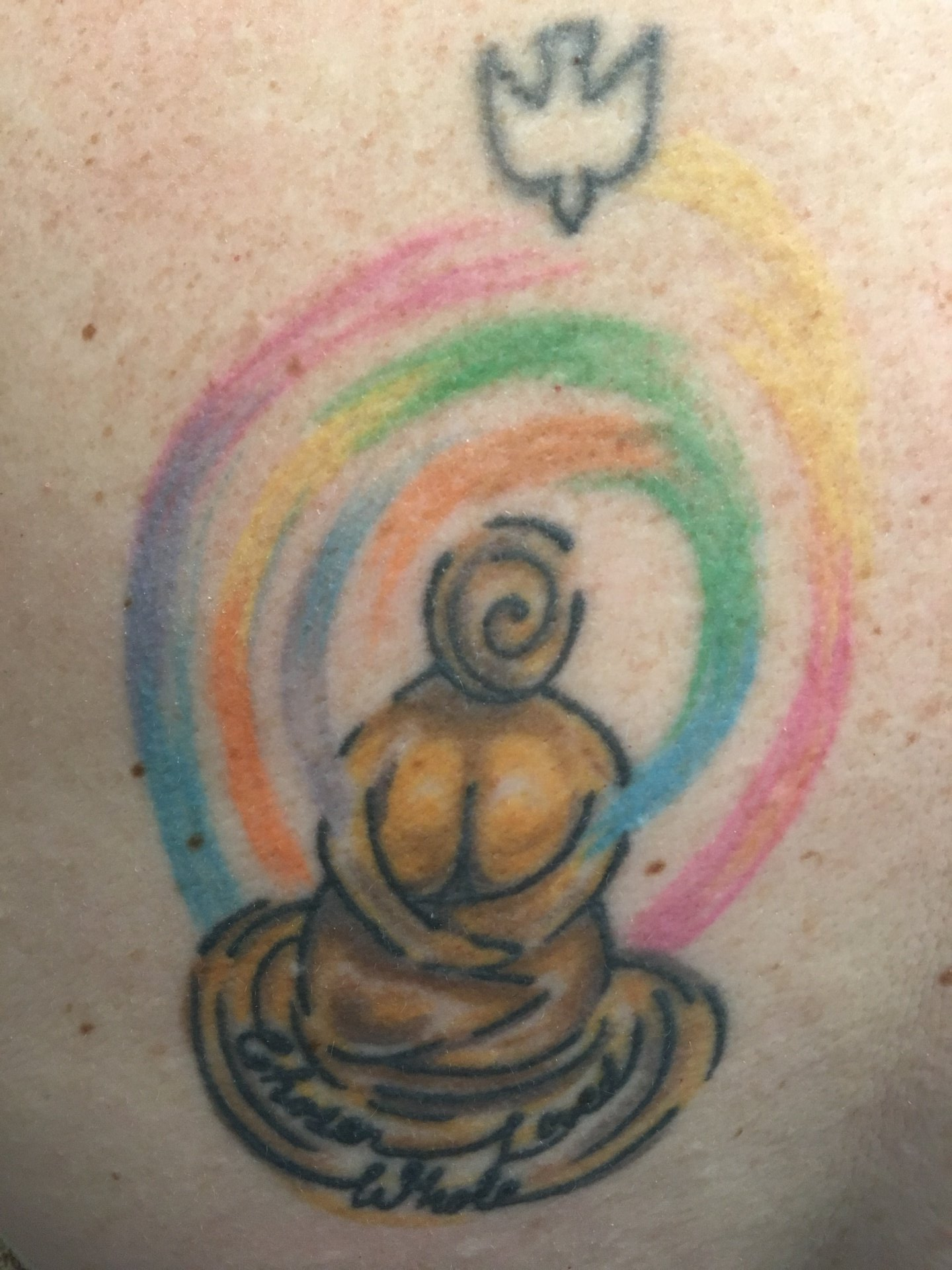
We played with playdough this past Sunday at church. It was cool and smooth and soft. I’m sure you’ve played with playdough at some time or other during your life--if not during church. But because we had just read Jeremiah 18:1-11 it seemed like a good idea for Neelah and I to make playdough Friday night and bring it to church Sunday morning so that everyone could spend some time pretending they were like the potter in that passage, shaping the clay. I encouraged everyone to shape the playclay into some symbol of love or faith while I was talking—hoping they wouldn’t get too distracted! There was a lot of shaping and re-shaping that went on in those pews (and up at the pulpit!). I think a lot of times, we get it into our heads that as a creation of God’s, we aren’t holding up our end of the bargain and becoming as perfect a creation as we are supposed to be as faithful followers of Jesus. We know we are making mistakes no matter how closely we try to follow! We start to wonder if, someday soon, we will be tossed out like the clay cups my friend Ted told me he witnessed being tossed out the windows of a crowded train in India just like we might throw out a paper cup. (well, not out the window of course—into the proper recycling bin I would hope!) Given the state of our lives, our church, our world, we wonder if perhaps, God will just throw us out. It’s easy to understand why we might start to think things like that. Because of the way time works, we know that we can’t go back and change things that have already happened—they are set in stone—I can’t go back and change the fact that I practically dragged my prone to motion sickness cousin Penny onto the Viking Ship the minute we arrived on her first trip to Canada’s Wonderland thus ruining her entire day! No one can go back to say good-bye now that you know it will be the last time. And the opposite is true too—none of us can stay frozen in a perfect place—as much as I might like the day of my confirmation to have made me “good” forever, after that I still fought with my sisters and made mistakes. We know we can’t just put an hour in on a Sunday morning and call it good—we have to keep making loving choices. But in this text from Jeremiah we can hear “Like the clay in the hand of the potter, so are you in my hand.” And that can give us the courage we need to never give up on ourselves, or on each other. Just like play dough we are not a finished product—marred and unworthy—not even close. In fact, none of us are ever finished as long as we are living—all of us are forever on the potter’s wheel, soft and pliable and being ever shaped and formed in God’s hands. God’s hands are all over every minute and every second of our lives and they are covered with the everyday grime of what it is to be human. Ever since Jesus came into the world we have known this about God. We are chosen and loved and worthy of being worked and reworked on the potter’s wheel. And, so, we can find hope and love and compassion and forgiveness in the words of Jeremiah—the doomiest and gloomiest of all prophets. Some of you may know this already and other’s of you may not—but I have a tattoo just over my heart on my back—it flowed out of the tattoo I had gotten almost 20 years ago know when I was finishing my Masters of Divinity. The first tattoo was of a descending dove to remind me that it was the Holy Spirit within me that inspired my ministry. But the second tattoo was of a potter’s wheel to remind me that I am loved, chosen and whole as I am shaped by that holy spirit into a holy child of God. Now, I’m sure most of you won’t need a tattoo to remind you of this truth of our faith. But I hope as we gather back after a summer apart to begin a new year together as a church we will remember the love of God that shapes us in every moment of our living. May that love inspire us to follow wherever it may lead. Amen. p.s. if you find yourself forgetting, think about getting your hands on some play dough... I’d love to see pictures of your creations in the comments!
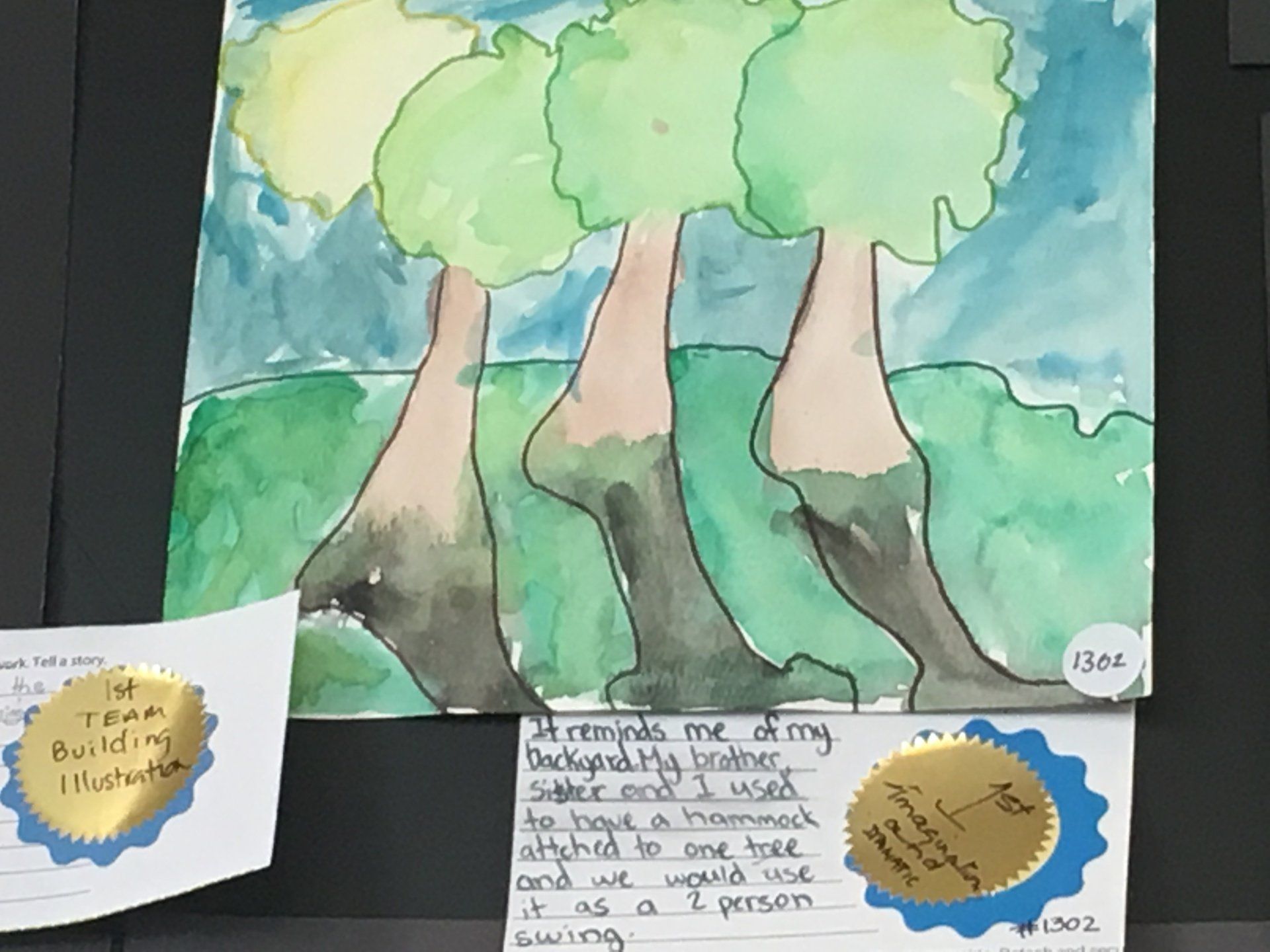
I am not a fan of competition. Not that I’m not competitive—don’t get me wrong—in fact I have to work very hard to overcome my competitive nature—something I wasn’t very good at doing when I was younger—I liked to win—almost any cost—to the point where several people in my family refused to play cards with me—and, I’m ashamed to admit—it still raises it’s ugly head every once in a while. Just ask my sister Carolyn who was at the receiving end of my lack of good grace when we got euchred last summer. I can rant and rave with the best of them if I’m not “winning”—only it’s not just at card games—now, it could also be that I’m just losing the war against a pile of laundry! But, just so you know, I’m not proud of it. But there it is. And that probably has something to do with me not liking competition—there are those out there who would argue it inspires people to try harder—achieve greater heights—feel a great sense of pride and accomplishment. I’ve even heard people argue that a lack of competition is one of the problems with “today’s generation”. But from my own personal experience, I know competition brings out the worst in me. But we all know competition is all over this lovely world of ours and maybe in some ways competition isn't a bad thing at all. After all, competition is a completely natural thing. Literally—natural—competition is rampant in nature. Think of those trees competing for soil and water and sunlight—forcing out all the tiny saplings—killing them when they are still too little to really compete. It’s the law of the jungle right? The survival of the fittest. The theory of evolution rests heavily on this law of natural selection—if you can’t compete you get weeded out—whether it’s because you have too much hair or not enough or whether your feet are webbed or not or whether you have adapted for speed or agility. There is only so much food, water, light in the world—you have to compete for it and if you can’t compete—you’re not going to get enough to live. It’s pretty simple and straightforward—hard to argue with really. Now when we lived in Saskatchewan, my mother-in-law (who was my children’s first music teacher) always entered her students in the local music festival. Now, I’m not sure if they even have them like this in Ontario so you might not know this but the Saskatchewan Music Festival Association prides itself for its Classical, Competitive Music Festival. And boy, is it competitive! All my children would enter piano, vocal, band and speech arts selections and then spend months mastering them for their performance. Once at music festival, they would finally perform their pieces, along with the other kids in their age category, doing the same types of pieces, and an adjudicator (aka: a judge) would give them feed back and then choose who was the best and second best. Those two get certificates—gold print for first, red print for second. No one else in the category gets anything at all. It’s a competition. And like any competition, it can get ugly. Many adjudicators that I watched over the years would try to counter act the hurt feelings and bitter rivalry that arose by saying over and over again that the marks didn’t mean anything—that the real losers were the kids sitting in school—and that the real winners are the kids who are still playing the piano thirty years from now—and that if they played their pieces again it could end up completely differently. And they had to keep saying that because the truth of the matter is, no one really believes it. The kids who get the first place marks are excited and jumping up and down (as are their parents and grandparents—but very quietly and with decorum—this is music festival after all) and everyone else is, let’s face it, disappointed. Those words take the sting out a little but everyone still wishes they could have won. Who wouldn’t? And, everyone is jealous of the kids who do win… what do they do practice night and day? Maybe their parents beat them if they make a mistake… those are the kinds of thoughts encouraged by competition. And just in case you think competition isn’t biblical, let’s talk about our reading from Acts for today. Now, the competition is implied by the reading—not spelled out by it. The truth of the matter is, there was a pretty strong rivalry going in the early church between the Christians who were Jewish, and this new group of Christians who were Gentile. Not only that, in the culture of the day, competition was as rife as it is now—everyone was competing to get to the top of the honour ladder. To be the one who was most righteous, most obedient to the laws of the day, most revered by the people, most honoured by God and man. If you shamed yourself by say, eating at table with those of lower station than you—your worth diminished. If you were Jewish and you broke the purity laws, you could no longer worship in the synagogue and were seen as being less than acceptable to God. Early Christians were still living in this world and struggling to understand what it meant to follow Christ who regularly and with great conviction thwarted all the laws of the honour/shame system and reached out continually to the lowest and the least. It wasn’t as easy for his followers. Yet Peter has a revelation, and is forced by it to go against what he wants to do and definitely against what others want him to do. He goes to the house of a gentile and stays there and eats with them. And in doing so he completely blows his chances of winning the award for the most Jewish Christian in Jerusalem. He blows the church’s chance to be chosen by God in the eyes of Jewish faith and law. He becomes a loser. And the Holy Spirit comes and lights up everyone in the house with power and love—and everyone wins. Our world tells us everything is scarce—money, time, and even love. But Dewitt Jones , a celebrated photographer for National Geographic and author, sees clues from nature that it doesn’t have to be this way. In his short film “Celebrate What’s Right with the World” ( celebratewhatsright.com/film ) he shares his epiphany for his life “Nature never stood in front of a forest and said ‘There is one great photograph hidden here; one photographer will find it and the rest of you will be hopeless losers.’ Nature said ‘How many rolls you got Dewitt? Bring it on. I’ll fill ‘em up with layers of beauty and possibility beyond anything you’ve ever imagined right down to my tiniest seed.” This is a vision of the world that encourages us to believe in ourselves… to trust and to let our light out without a care in the world about whether or not it will win any competitions. To evolve as humans beyond the competition for resources that the natural world is stuck in—it’s a dog eat dog world—not a human eat human world—and I believe there are tons of clues in our faith that we are meant to evolve beyond the framework of competition and into a framework of unconditional love. Love modelled to us by Jesus and his followers to give us a glimpse of God’s new heaven and new earth where this evolution is complete. Before Easter, Olyndra came home with a note saying she had won a prize in the art competition she had entered and we were all so excited! We went to the Collingwood Library where we could see her art displayed and collect her prize to discover that the Library was covered in art from kids all over the area. Every single piece of art had a gold 1st place seal on it – each one with different attributes listed that contributed to it’s first place win—first for imagination, first for colour, first for design, first for use of animals, first for depiction of nature, first for inventive shapes. And my music festival competitive side thought that took something away from Olyndra’s achievement. But by these standards of God, I know that to be far from the truth—there in that library—the light of all those children shone for all to see. Created out of joy of art—not to win any prizes—and it was glorious. When Peter went into that house he wasn’t caring about success by the world’s standards—he was thinking about sharing the light of God and bring love in a hopeless place. When we can all do the same—realizing there is no scarcity of the love of God in Christ Jesus our Lord—we will be living examples of the wideness of God’s mercy where everybody wins!
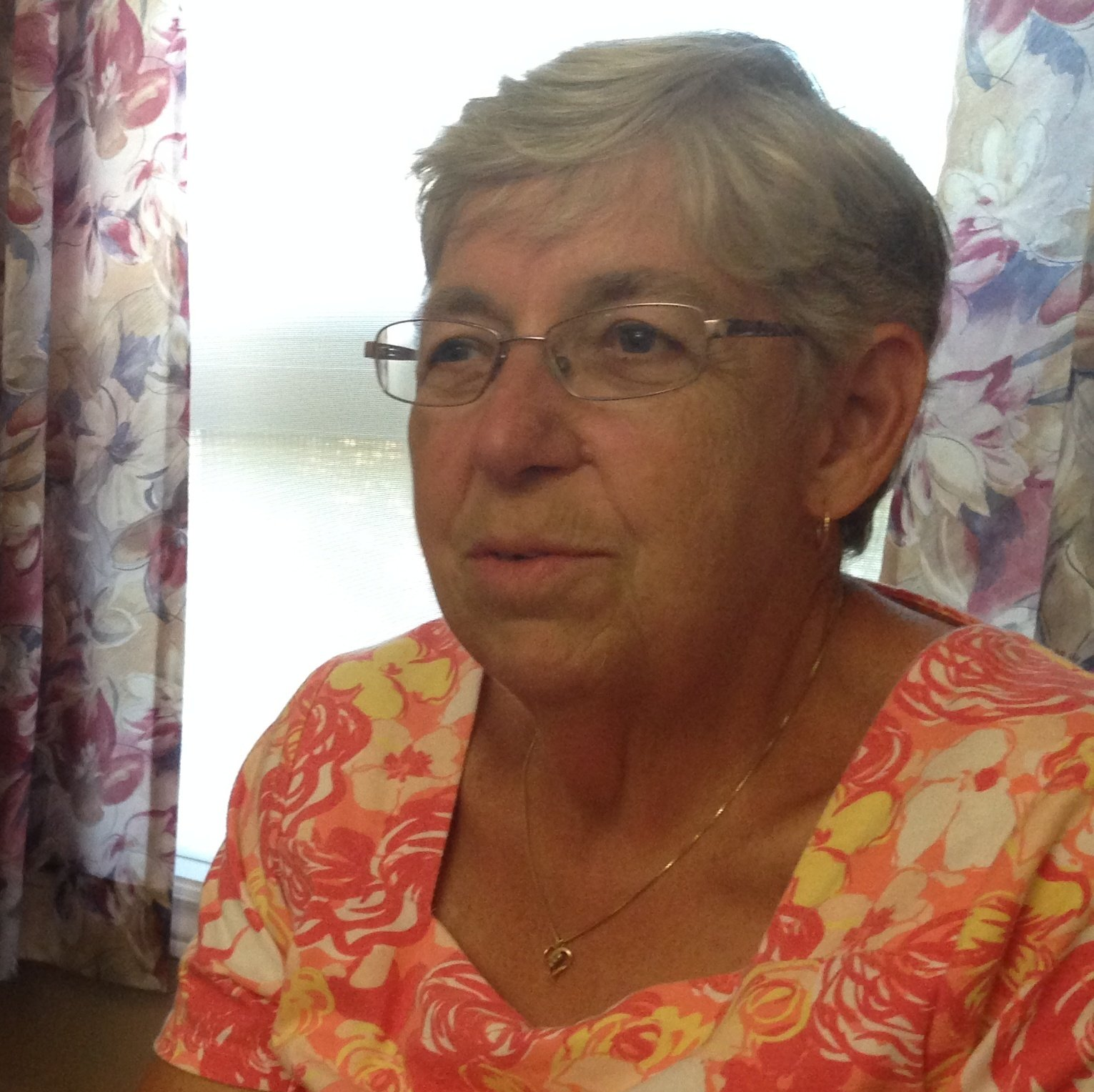
The Lord is my mother. I am the person I am today because of her. She makes sure I eat healthy, exercise and take time to stop and smell the roses. And she makes sure I know it when I am out of line. She shows me what is really important in life and it isn’t success or money or fame —I could have all that and still not be happy— it’s all the little moments spent at her feet while she plays with my hair, singing along to the radio in the car or talking as the miles pass, finding her at the other end of the telephone line. She reminds me again and again that I don’t have to be perfect. I am chosen, loved, whole, just as I am. Even when I am losing my mind because I can’t get something right or when I am devastated because the world is a cruel place or I don’t even have the energy to get out of bed in the morning, she’s never further than a phone call away. Whenever I am hurting, she gathers me in her arms and rubs my back. With her “It’s okay, it’s okay, it’s okay.” she soothes me until my sobbing eases. She teaches me how to knead dough into buns and roll pastry into pies and whisk drippings into gravy so that we can feed everyone who shows up the family Christmas— even the uncles who purposely try to push my buttons with their close-mindedness. She reminds me they too are family. She welcomes everyone saying “The more the merrier” and I am always amazed because she really means it. And if I have been away, for whatever the reason, for no matter how long she’s the one who breaks down when I come through the sliding doors and into my neck through her tears cries out “I’m so glad you’re home!” Since God is my mother, there is no way I can ever go wrong.
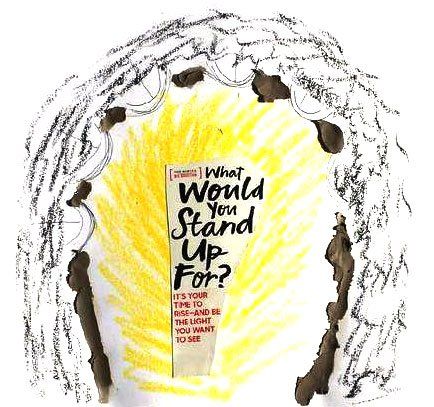
Last year, just before Easter, I went, as was my bi-monthly custom, to see my spiritual mentor. It was the third year since I had left the pulpit. I had retreated whole-heartedly into this time away from ministry and often described it as going deep into a cave—all by myself—to spend time totally alone (can you tell I am an introvert?). I loved it. In my mind, I was not even close to being ready to risk my new found solitude by returning to ministry. On this particular visit (did I mention it was right before Easter?) I created the piece of art you can see here. To be clear, I was not asked to depict a resurrection scene. My spiritual mentor left out every kind of art material I might possibly want—magazines and scissors and glue for any possible collage, clay, markers, pens, pencils, pencil crayons, crayons, pastels, paints and brushes, plastercine… you name it, it was there—and she told me to just do whatever I wanted—not to think too hard—just create. And this is what happened. I remember that day, I had been feeling particularly attacked by the world around me—the school system, health care, the church, patriarchy, family… it seemed like I was running into brick walls everywhere. I was trying to stand up for what I believed in but I kept getting pushed back down. That feeling was represented by the arrows—one for every area in my life that was pushing me down—and the clay—for all the brick walls I was running into. There was me in the middle—trying to shine my light—only to have it blocked again and again—by the death dealing forces around me. What was the point of even trying I wondered as I forcefully smeared the mud all around…the chaos of the world was all around–there’s no overcoming that! It was keeping all my light in. I can remember feeling so powerless and angry as my hands got dirtier. Then my spiritual mentor asked me to step back and look at what I had created. And I felt all the energy of that light trying to burst out into the world. All the energy within me—an energy I hadn’t realized was there—that I hadn’t known had returned. An energy to want to stand up to the darkness and say—nope—you can’t bury me—not today! Uh unh—you can’t hold me down—you can’t stone-wall me—No Way. And, I noticed, that the very places I had identified most strongly as the places holding me back and keeping me from shining—were the very places in my art where the light was most likely to break through—those were the places where the stone was already rolled away. Setting me free. Our ability to see that there is something wrong creates a crack in the death-dealing forces and sets us on a path to facing it and speaking out against it and being the light we want to see in the world. That’s what it says in the middle there—below “what are you willing to stand up for”—“It’s time to rise and be the light you want to see” It’s not easy to stand up to the forces of evil in the world—to risk loving in those places and keep trying to reach out and change the world no matter how much resistance you might face—no matter how much it scares you—no matter how much it makes you cry—but that is the way to roll the stone away. And that is the only way to resurrection. And here’s the thing, you never know when you might find Easter—when new life might emerge—it might be three days, it might be three years. But, if you are willing to venture to the mouth of the cave—if you are willing to stand up for something—if you are willing to rise and be the light you want to see… you will find resurrection. You should know, the day after I created this picture, I saw that Stayner was looking for a new minister. Thanks be to God! Inspired by my Spiritual Mentor: Marg Janick-Grayston of Free Flow Wellness ( www.freeflowwellness.ca ) and Brené Brown’s Netflix Special “Call to Courage”.

